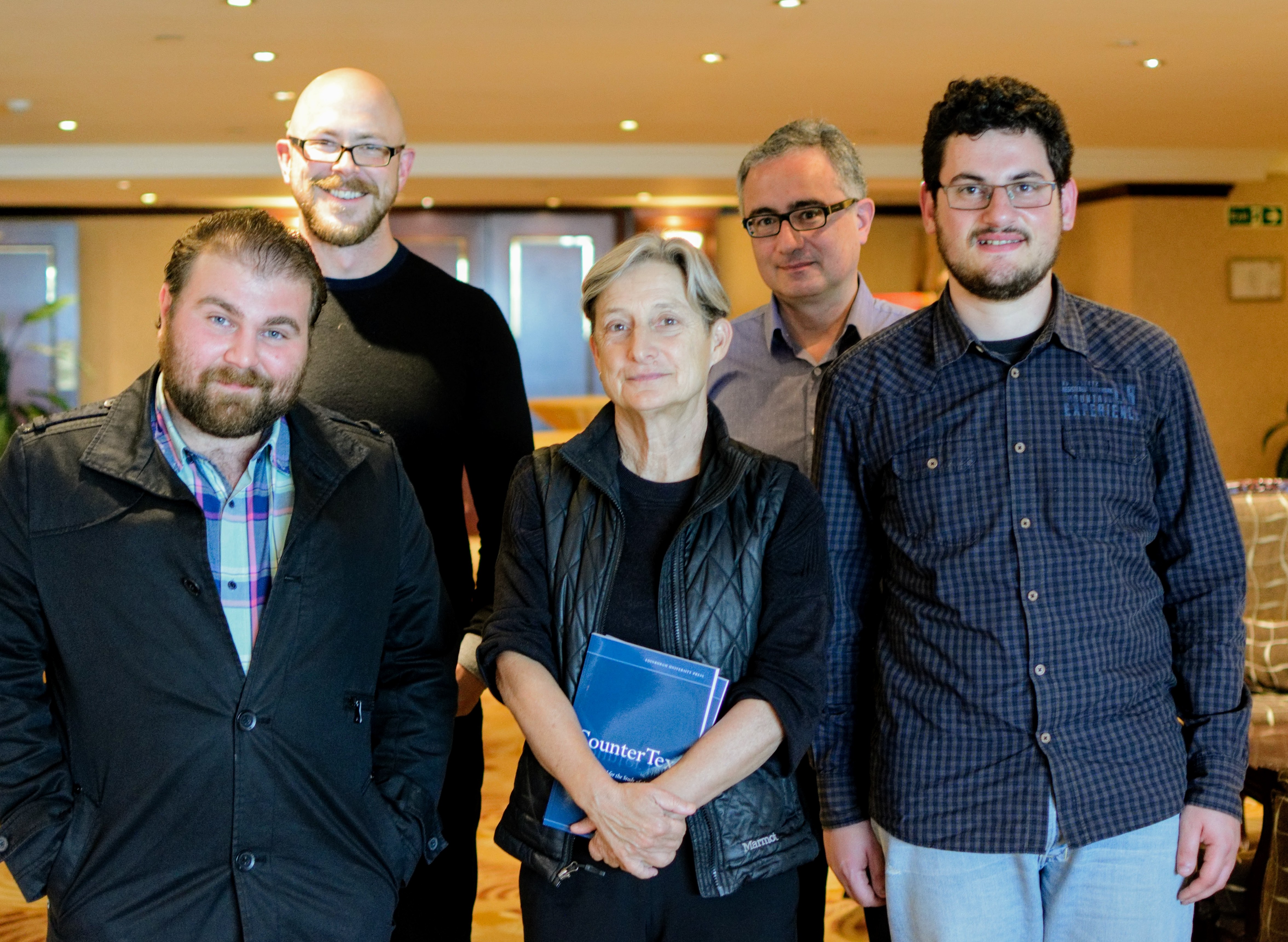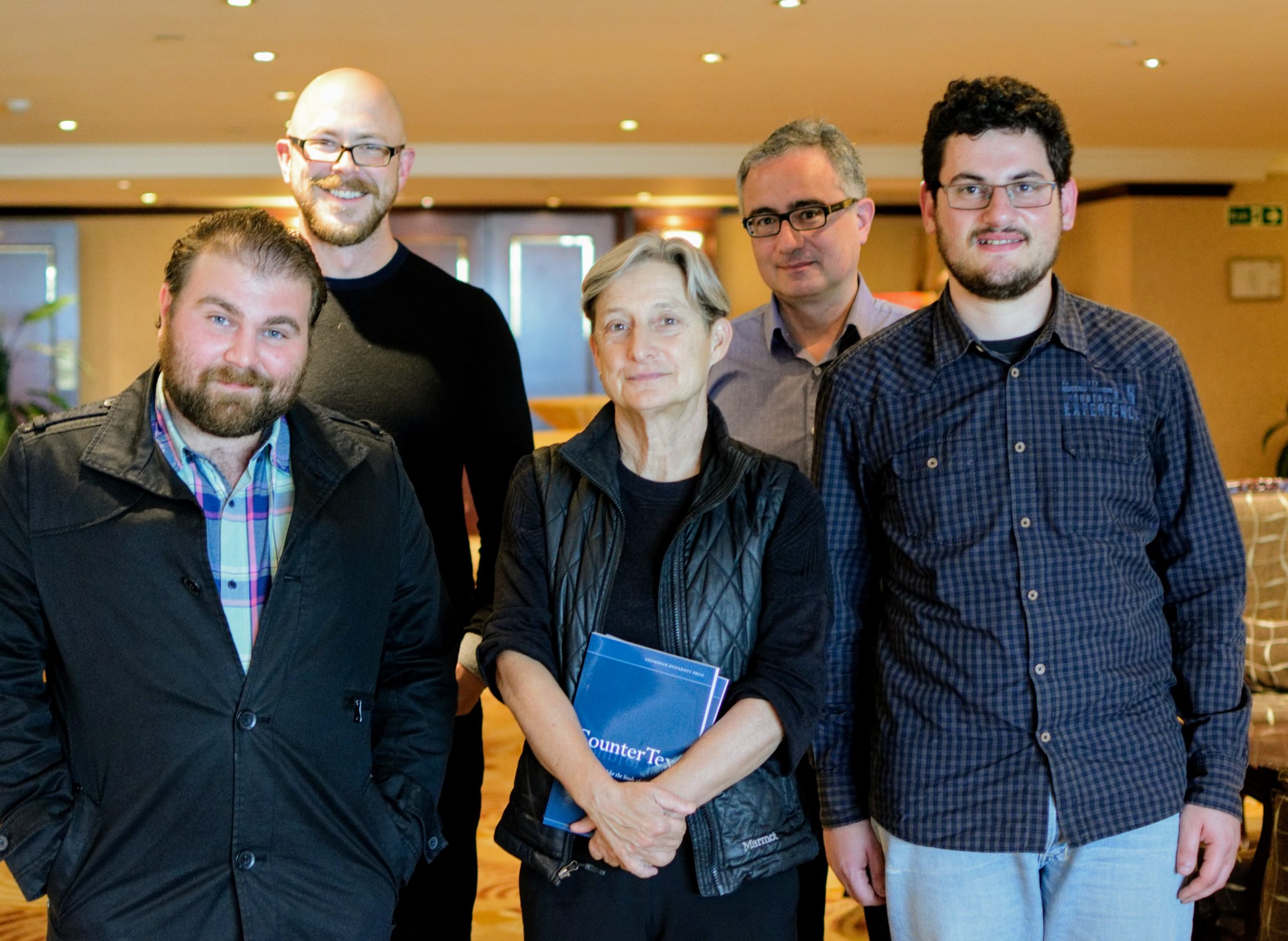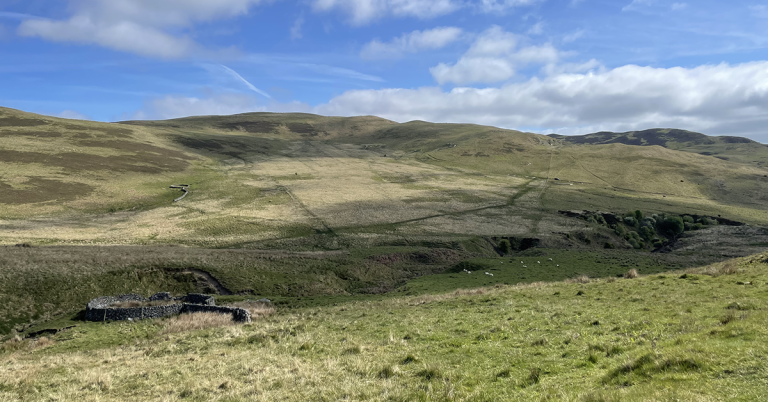
CounterText Volume 3.2 (August 2017) is a special issue entitled The Poetic, and contains a contains a wide-ranging interview with Judith Butler conducted by Aaron Aquilina (Lancaster) and Kurt Borg (Staffordshire).

The following remarks, taken from near the end of the interview, powerfully capture Butler’s energetic and multifaceted understanding of critical thinking, exemplifying her own thought in its originality, creativity, and rigour:
By ‘critical thought’ I don’t just mean critical theory in the Frankfurt School sense, although that’s certainly part of it, but critical thought more generally, as part of what we do at universities, which involves learning how to read and interpret, and reading widely and well, and learning how to substantiate your views and base them on textual dimensions. I mean these are the basics in teaching literature and philosophy, these skills and practices of critical thinking that are actually important for public life. And they are now being censored; they’re being devalued by the neoliberal metrics, but they’re also being actively devalued by other means, and I think these skills, which are very fundamental and go way back, still remain crucial, and this shows us that these fields, jointly and separately, still have a crucial political future ahead.
While the interview is not concerned specifically with the theme of the special issue, Butler does offer fascinating insights into the importance of poetry for her, noting the singularity of the experience of reading poetry. According to the editors, Ivan and James, “the idea of the poetic remains extraordinarily relevant for any attempt to understand our post-literary present and the possibility of a countertextual future.”
The first part of the interview engages Butler in a discussion of what literature and poetry mean to her, before moving on to more specific considerations of Kafka’s work alongside a more general and exploratory discussion of the relations between the literary and the philosophical – core concerns of CounterText. The interview moves on to consider the institutional contexts that come to bear on literature; that is, what happens to literature (and to philosophy) when it is faced with academic boundaries coupled by rigid academic governing practices and neoliberal metrics, and how these may be curtailing the potential of contemporary critical work.
The second part of the interview considers core themes in her oeuvre. Here, Butler discusses how the notion of vulnerability has operated since her early work on gender up to her work on ethics, ruminating over the import of poststructuralism and other influences on her ethical thinking, and further elaborating on the relevance of an ethical language of impressionability and susceptibility. This culminates with a discussion of how discourses of vulnerability and precarity can inform analyses of contemporary situations, such as the so-called refugee crisis in the EU.
You might like to read other CounterText blog posts such as:





